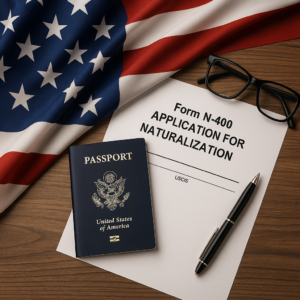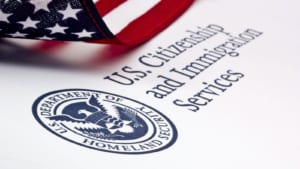Enterline and Partners Co-Founder, Ryan Barshop sat down with Philippines cable news GMA 7 to discuss the new social media handle disclosure when applying for U.S. visas and its implications to applicants.


The priority date in U.S. immigration is a critical concept for anyone waiting for lawful permanent residency status (“Green Card”). Because Congress sets strict annual limits on the number of immigrant visas issued in most categories, demand often outstrips supply, creating significant backlogs. Your priority date effectively acts as your “place in line” in this complex government queue. This priority date is established when the United States Citizenship and Immigration Services (“USCIS”) receives your initial petition, either the Form I-130 (for family-sponsored cases) or the Form I-140 or Labor Certification (for employment-based cases) or Form I-526/I-526E (for investor cases). Think of it as the timestamp on your ticket; until your number is called based on this date, you cannot move forward to the final stage of the immigration process. Understanding how the USCIS priority date works is vital for managing your expectations, planning your life during the wait, and knowing

The U.S. Citizenship and Immigration Services (“USCIS”) has announced an update to its Policy Manual that re-introduces a modified version of the 2020 Civics Test—now called the 2025 Naturalization Civics Test. The update, once adopted, will apply to applications for naturalization (Form N-400 Application for Naturalization) filed on or after October 20, 2025, and aims to reinforce the importance of civic knowledge, assimilation into the U.S. society, an understanding of the Constitution, laws, and founding principles of the United States. Why This Change Matters Naturalization is the process by which lawful permanent residents become U.S. citizens—gaining full rights and responsibilities in American society. Under Section 312 of the Immigration and Nationality Act (“INA”), most applicants must demonstrate both proficiency in the English language and knowledge of U.S. civics and government. The USCIS notes that strengthening these requirements is part of its broader goal to ensure that new citizens are well-prepared

If you are applying for the EB-5 Immigrant Investor Visa, one of the first questions you’ll ask is: “What is the EB-5 visa processing time?” The truth is, EB-5 processing times vary greatly depending on many factors, such as your nationality, the project you invest in, how the United States Citizenship and Immigration Services (“USCIS”) handles the Form I-526/I-526E Petition (“Petition”), and timing regarding the approval of Petitions, and timing regarding visa availability. On average, it can take 12 to 30 months for many Petitions to be approved, but the official USCIS posted times may show 2–4 years or longer. EB-5 Visa Process Overview There is a 3-step process to obtaining lawful permanent residence in the U.S. via the EB-5 immigrant investor visa category. First, an investor files a Form I-526 or Form I-526E Petition with the United States Citizenship and Immigration Service. Once the Petition is approved, an investor
Copyright 2018 – 2025 Enterline and Partners Consulting | All Rights Reserved